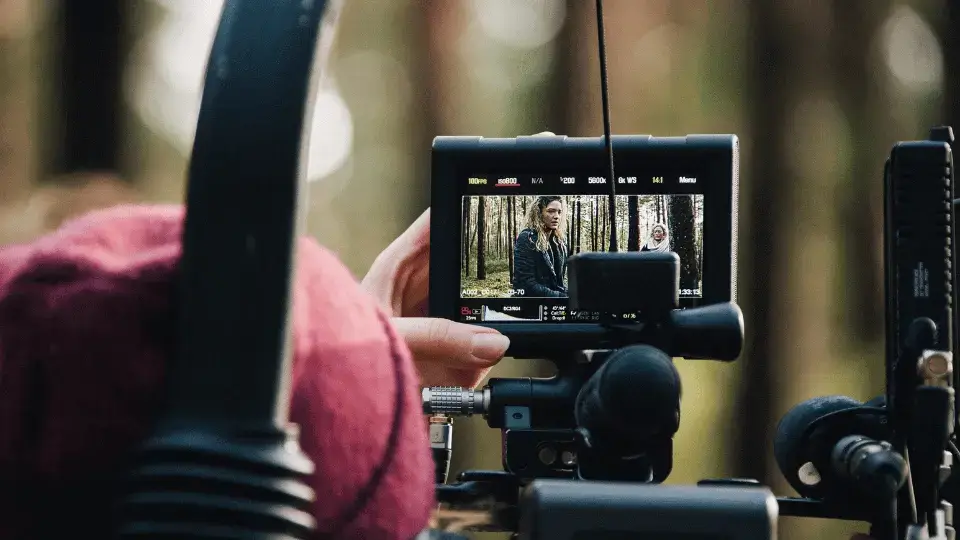In the realm of filmmaking and television production, understanding the tools of the trade, particularly cameras and lenses, is paramount. As an aspiring assistant camera operator, the first step on your journey should be gaining a deep knowledge of these instruments, as they will be your most trusted companions in the industry.
This article aims to guide you through the diverse types of cameras and lenses utilized in film and TV production, spotlighting their unique features and capabilities. Furthermore, it will delve into the essential technical and soft skills that an assistant camera operator needs to excel in this field.
Understanding the Different Types of Cameras and Lenses
The first step to becoming an assistant camera operator is understanding the different types of cameras and lenses that are used in the film and television industry. There are many different types of cameras, each with its own unique features and capabilities. Some of the most common types of cameras include:
- Digital Cinema Cameras: Tailored for the filmmaking process, these cameras stand out with their ability to capture high-quality video with cinematic attributes. The depth and clarity they bring to visuals are truly unparalleled.
- DSLR Cameras: A favorite among independent filmmakers, DSLR cameras offer high-quality video outputs along with a shallow depth of field. Their versatile nature makes them a staple in many filmmakers’ kits.
- Mirrorless Cameras: These cameras, while similar to DSLRs, lack a mirror mechanism, making them lighter and more compact. Their convenience and capability are making them increasingly preferred within the film and television industry.
A Lens for Every Shot
Once you have a good understanding of the different types of cameras, it’s important to learn about the different types of lenses that are used in filmmaking. Lenses can have a significant impact on the overall look and feel of a shot, so it’s important to choose the right lens for each situation. Some of the most common types of lenses include:
- Prime Lenses: These lenses have a fixed focal length and are known for their sharpness and clarity.
- Zoom Lenses: Featuring a variable focal length, zoom lenses are loved for their adaptability and convenience, enabling a range of shots without the need to change the lens.
- Wide-Angle Lenses: Sporting a short focal length, wide-angle lenses excel in capturing broad views and establishing shots, giving audiences a comprehensive view of the scene’s setting.
Mastering the Technical Aspects of the Role
As an assistant camera operator, you will be responsible for many different technical aspects of the role. Some of the most important technical skills include:
- Focus Pulling: This involves adjusting the focus of the camera during a shot to ensure that the subject is always in focus.
- Camera Movement: This skill involves controlling the camera rig and altering the camera’s position to craft the desired visual effect.
- Camera Settings: Mastering camera settings like aperture, shutter speed, and ISO are necessary to control exposure and depth of field, thereby influencing the overall look of the shot.
- Equipment Maintenance: Regular care and troubleshooting of camera equipment are essential to keep your tools in peak working condition.
Developing Soft Skills for Success
In addition to mastering the technical aspects of the role, it’s also important to develop the soft skills that are necessary for success as an assistant camera operator. Some of the most important soft skills include:
- Communication Skills: As an assistant camera operator, you will need to communicate effectively with the director of photography, camera crew, and other members of the production team.
- Problem-Solving Skills: You will need to be able to think on your feet and come up with creative solutions to problems that arise during a shoot.
- Attention to Detail: You will need to have a keen eye for detail and be able to spot even the smallest issues with a shot.
- Teamwork: Filmmaking is a collective effort. The ability to work cohesively as part of a team and collaborate with others is key to achieving the best possible results.
Conclusion
Becoming an assistant camera operator is an exciting and rewarding career path for those with a passion for cameras and visual storytelling. To be successful in this role, it’s important to understand the different types of cameras and lenses, master the technical aspects of the role, and develop the soft skills that are necessary for success.
If you’re interested in pursuing a career in the film and television industry, we recommend considering the NYU Film and TV Industry Essentials online course and certificate program. This program offers a comprehensive overview of the industry and can help you gain the knowledge and skills you need to succeed.








